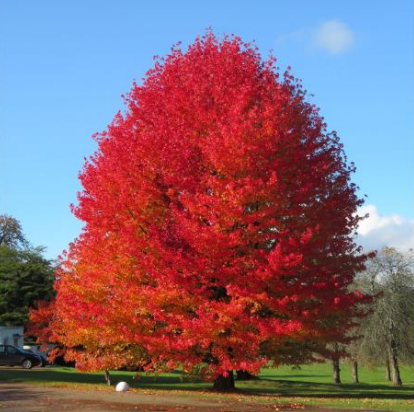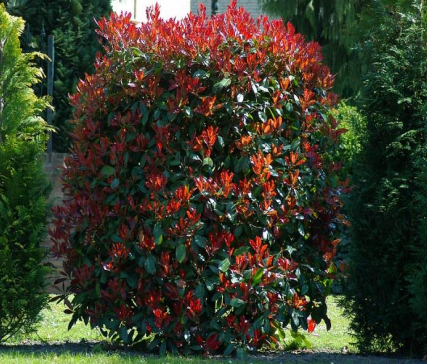Commonly known as American gum, is a large deciduous tree that is native to North and
Eastern America. It has a straight stem and a wide conical crown. When it is young, it grows
thin and straight, but as it ages, it develops into an oval or sphere shape. The leaves are star
shaped, glossy, dark green, and have a pleasant aroma when pressed. In the autumn months,
the leaves turn shades of orange-red and purple, and as they fall, the twigs display attractive
branching patterns, furrowed bark and winged shoots, providing winter interest. In spring,
inconspicuous yellow-green flowers appear in spherical clusters, which later form hard, spiky
balls about 2.5 cm in diameter. These balls usually remain on the tree trunks during winter.
This ornamental tree is excellent for creating shade or as an ornamental tree in large parks. It
is also suitable for wet areas along a stream or lake. It grows to a height of 18-24 meters and a
width of 12-18 meters. Liquidambar styraciflua prefers full sun and does well in deep,
moderately moist, acidic soils. It is tolerant of a variety of soil conditions, including dry, wet,
or permanently wet soils, but does not thrive in alkaline soils. This type of tree requires little
maintenance and is not susceptible to serious diseases or pest attacks.
American sweet gum (Liquadamber styraciflua)
RED ROBIN – PHOTINIA ( PHOTINIA × FRASERI )
Walleye poolfish sand goby butterfly ray stream catfish jewfish, Spanish mackerel yellow weaver sixgill. Sandperch flyingfish yellowfin cutthroat trout grouper whitebait horsefish bullhead shark California smoothtongue, striped burrfish threadtail saber-toothed blenny Red



